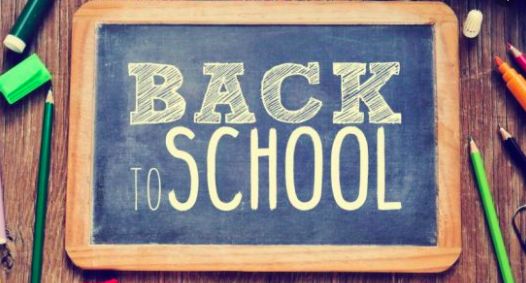Helping Your Child to have a Smooth School Transition

One of the most common problems to occur for children and young people is the transition from primary school to secondary school. Whilst this can be an incredibly exciting time filled with lots of opportunity for growth, making new friendships, and undertaking lessons that they’ve never had before, for other children it can be quite simply terrifying. When your child reaches year 6 in primary school they are at the top of their game. They are the big fish in a small pond. If your child has been in the same school since they were in reception they probably know the names of every teacher and every other child in the school. They are the biggest, the tallest, and the most knowledgable bunch of children that attend the school. When they go to secondary school however, it’s like having the rug pulled from underneath their feet. Having spent the last 6 or 7 years reaching top dog status, they are now the smallest, the youngest, and the least knowledgable all over again.
Having worked in secondary schools I can honestly say that the new year 7s can be spotted a mile off. And it’s not just because of their size! The new year 7s play. They play like children on a playground because for them they are still children, but towards the latter half of year 7 and certainly towards year 8, that’s gone. Now playing isn’t cool anymore, but rather hanging out is seen as the thing to do. The boys stand the best chance at hanging onto their playtime for a little longer, because they may join in various sports and clubs that take place during school break times. That’s not to say that the girls do not have this opportunity (and it largely depends on the resources available in the school), but for girls around this time relationships between each other becomes all the more important.
Not only is there a huge shift from feeling like the king of the world to the lowest, youngest and smallest, but there is also the physical transition. For most, their secondary school is like a village compared to a much smaller primary school (which perhaps felt like a home by the time they left). Many young people become stressed and anxious about navigating their way around the various buildings that they might need to attend for different lessons. Some have never worked with a timetable. Some even perhaps do not know how to read a map of the school. All of these added pressures can bubble away under the surface, causing your child to feel growing anxiety when September is on the horizon.
It’s not until after they begin at their new secondary school that children may notice the cultural differences that secondary school presents to them. Often the attitudes of teaching staff are very different from those in primary school. Primary school is often a much more nurturing environment whereas secondary school tends to have a more business-like feel to it. For children who are perhaps more gentle in their nature, they can find the differing attitudes in secondary school to be cold and unwelcoming. This too can instigate school phobias and fears around going there on a Monday morning.
To give your child the best possible chance to engage with their education and to achieve to the level that they are capable of, it’s important to address any concerns or worries about the transition. As parents, very often we feel that we have the answers, and the answers that we give our children are correct (most of the time they are). But your child expects you to tell them the right things and to be reassuring, but that doesn’t mean that they really believe that you understand what is going on, or that you’re taking it as seriously as they might like you to. That’s why it can be beneficial to have a child therapist who will step in and help communicate to your child many of the things that you already know, with some important techniques to help them manage their fears and worries thrown into the mix.
You can find out more about the sorts of techniques that I teach in my sessions by attending a free consultation. Here you would attend with your child so that I can find out more about the underlying fears and worries that they may be experiencing when they are moving, either from primary school to secondary school or simply changing schools as the result of a house move, or from infants to a middle school. My consultation sessions take place in Essex where I work with parents and children from all of these areas: Basildon, Billericay, Wickford, Southend on Sea, Chelmsford, Colchester, and Brentwood. You are very welcome to phone my assistant, Olivia, who will tell you more about the sessions that I offer and how your child can benefit from coming to see me on: 07958 203 274
By Gemma Bailey
https://www.essexchildtherapy.nlp4kids.org/bookings

Leave a Reply